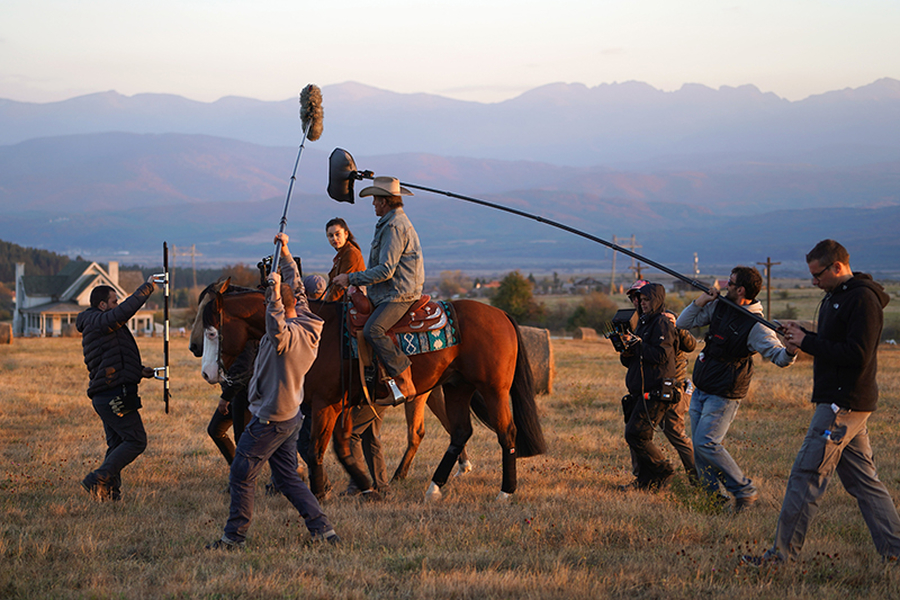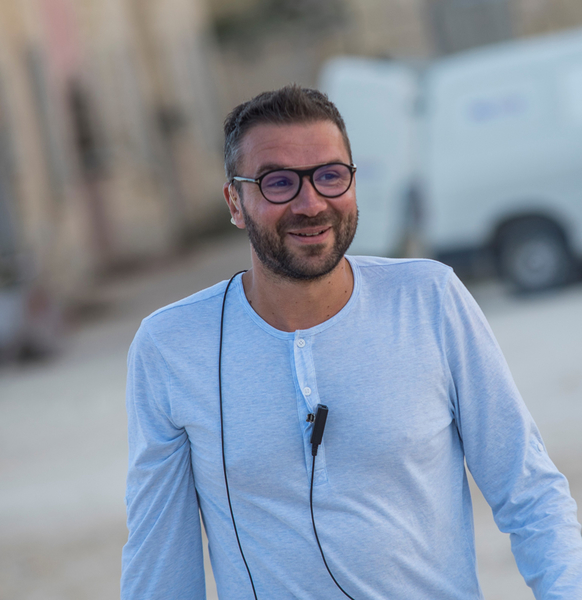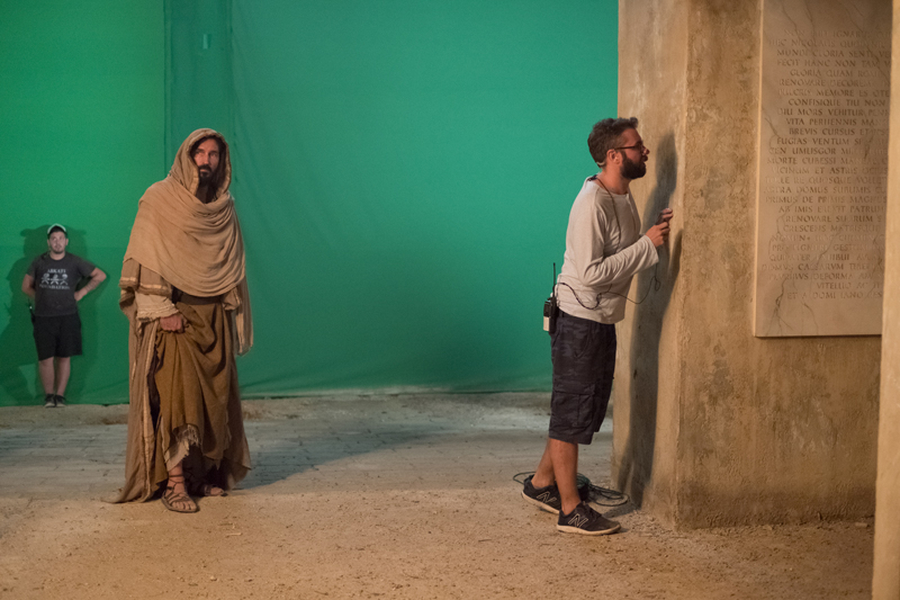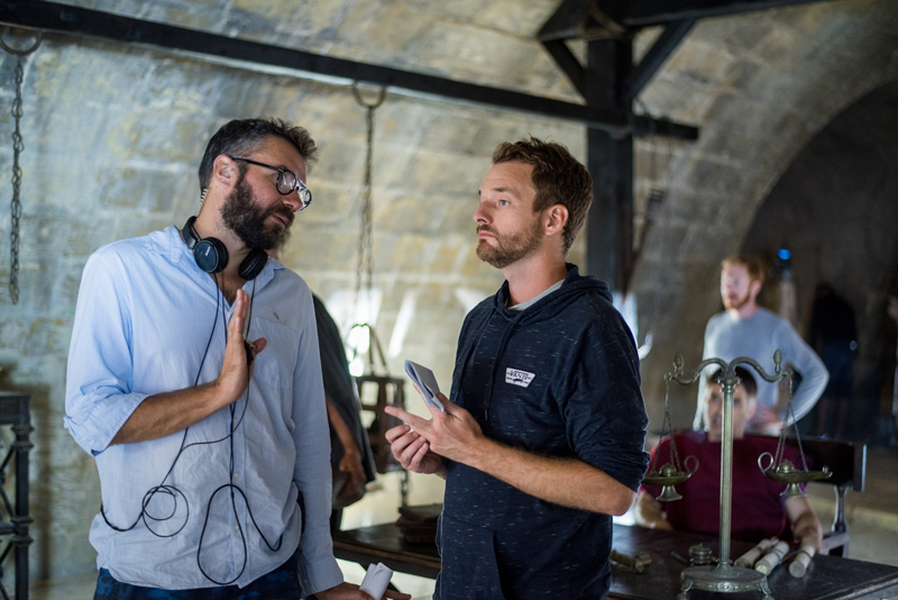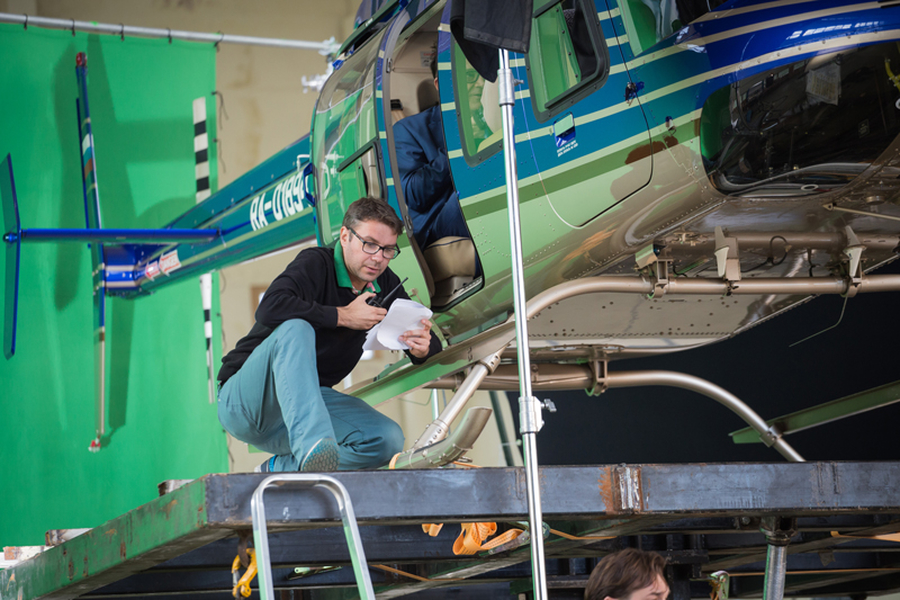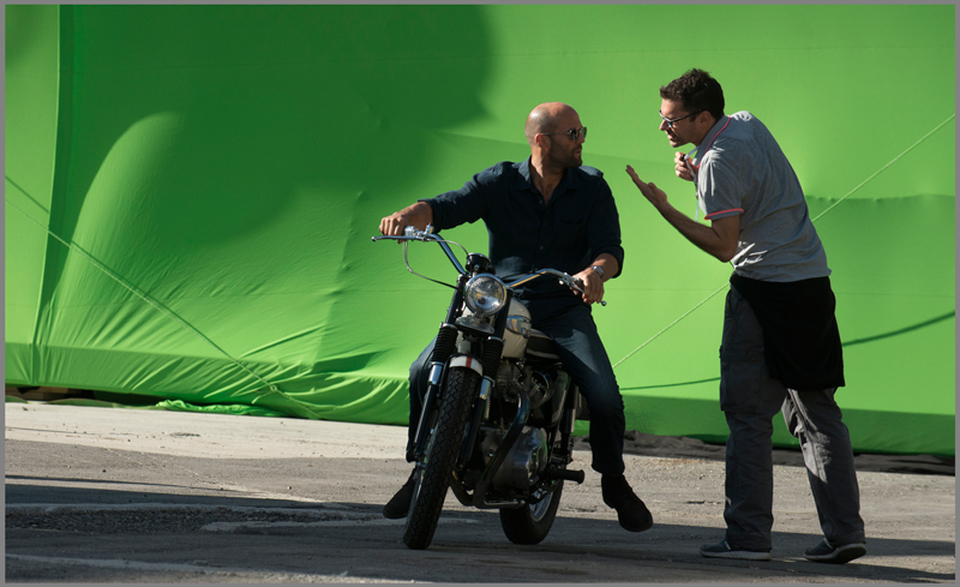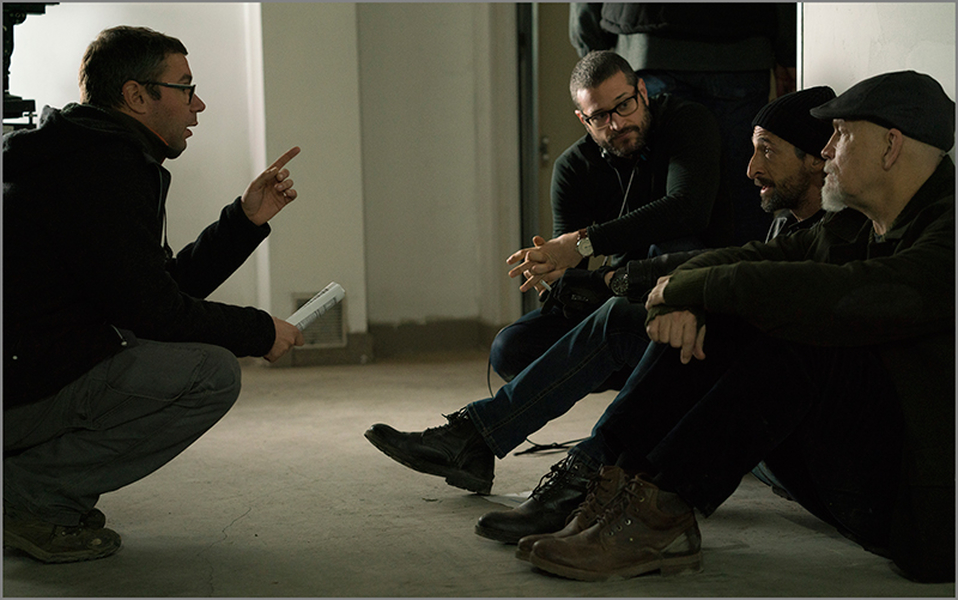My job as a First Assistant Director is to facilitate the Director and the Cinematographer in telling the visual story and “getting the shots” done but also keep them within reason, time, and budget. Another priority of the First Assistant Director is to look after the crew, keep them informed and safe. An indispensable part of first assistant directing is communicating to the producers all key aspects of how the filming is going, what problems we may encounter and suggesting how we can address them. The main responsibility of the First Assistant Director is scheduling the whole shoot. The Cinematographer can have a huge input in the scheduling process. So can the Director and to some extent the producers. I’ve come to realize that in order to be a good assistant director one should know both worlds well – the creative field of storytelling (ruled by the Director and Cinematographer) and the world of managing people, resources and time (the realm of the Producers). Being passionate about what you do is a huge plus for any position regardless of the field. Last but not least, working as a First Assistant Director or in any other position as a crew or cast member can be very strenuous for your work-life balance.
My philosophy is rooted in the belief that at the end of the day it all comes down to people skills. Of course, expertise and experience are necessary conditions but working with people is the most difficult and most rewarding part of my job as a First Assistant Director. Shooting a movie is like creating a parallel reality and along the way you meet very different personalities you have to understand, collaborate with and (temporarily) live with.
To any First Assistant Director, the working relationship with the Director is essential. I like collaborating with Directors who have a clear vision about the story, are very detail-oriented and care for their cast and crew. The prep period for the shoot is when you spend a lot of time with the Director, dig into the script, the Director’s interpretation of it, and all the creative and technical details of shooting the scenes. There are long hours of analytical work where the First Assistant Director has to build the shooting schedule taking into account all the aspects of filmmaking – script, cast availability, creative preferences, logistical and budgetary issues, input from the various Heads of Departments (Production Designer, Stunt Coordinator, Visual Effects Supervisor, Special Effects Supervisor, Costume Designer, Hair and Make-up Designers among others). In my experience, collaboration with the Director during the prep period is crucial as this is when you lay the foundations. This is when you develop the strategy. Shooting is executing the plan you have built. With some Directors you just “click” and there is mutual trust and respect. With others, it is not so easy, but I always try to find common ground, be supportive and helpful, offer my advice and opinion and not get upset if they are rejected. At the other end of the spectrum are Directors who are very insecure, secretive and/or authoritative. They may still be very talented story-tellers (or not). In such cases the best you can do is to be honest and respectful—and be prepared for a lonely journey. Some Directors would hear their First Assistant Director’s input when it comes to creative decisions. Others believe the First Assistant Director is there to help only with the logistical side of executing their vision. For a First Assistant Director it is good to be comfortable with both approaches.
The other person you want to establish a great working relationship with is the Cinematographer. This is the person who can “make or break” the schedule the First Assistant Director has created. Scheduling is a collaborative event. DPs (Directors of Photography) need time to light the sets. Sometimes a lot of time . . . Time on a movie set is the most sensitive issue for the First Assistant Director. When shooting we are always running against time. And it is the First AD’s responsibility to keep everything on time. If the DP and the First AD have not discussed in advance the shots for each scene, the time and equipment needed, there is going to be a great deal of tension, ineffectiveness, and, ultimately, overtime. Overtime on a regular basis makes the crew very unhappy and is a strain on the budget. The only way to avoid it is for the Director, Cinematographer, and the First Assistant Director to work closely and come up with a solid plan. When you have the time to think during prep, you can go through all that methodically, so it’s so much easier to react on set to any unexpected circumstances.
The First Assistant Director reports to the Producers. It always helps when Producers have a deep and thorough understanding of the filming process. Sometimes Producers are not very supportive or they try to micromanage or they constantly breathe down your neck. But if you establish a clear channel of communication with them, it pays back. The First Assistant Director should not keep the Producers in the dark, but at the same time should be able to sift through all the info and give them only what’s relevant for the bigger picture. I have a lot of respect for Producers who have a knack for hiring the right people for the right project. This is how great teams are formed and from this camaraderie some great movies are born. Once you have established a close working relationship with a certain Producer, you usually hear back from them and they get you onboard their next project.
Then comes the crew. My main responsibility to them is communication, giving them the information they need to get their work done well. The way the crew works best is if they know what’s going on and what to anticipate, as opposed to me trying to figure out what they should be doing. Just tell them what is being planned—they know their jobs much better than I do. What I can do to make the ship sail smoothly is to ensure all Heads of Departments are three steps ahead. I try to run a well-paced set so that nobody is running aimlessly around, screaming and panicking, so that things happen orderly and calmly.
What also helps when dealing with people on a movie set is if you have started your career at the lowest rung of the ladder and have worked your way up. That’s how you learn what people do in different positions on a film set. You develop an appreciation and respect for other people’s work, and they always feel it in your attitude. I also consider myself privileged to have had great mentors along the way.
The common perception is that the First Assistant Director is not liked by the crew members because she or he always rushes them and occasionally takes the liberty to put them down if they don’t deliver as expected. To me this is an old-school approach that no longer works. If you work hard to empower people, make them feel valued, and keep your sense of humor, your team will be much more committed and willing to go above and beyond. And when the time comes to be assertive, offer criticism, or push back for a reason, crew members will actually listen to you. This is easier said than done as the set can be a very stressful place with a lot of pressure for everyone, which typically doesn’t bring out the best in people. But being mindful about treating fellow crew members kindly and respectfully is very beneficial to the work process and rewarding to me personally.
Movie-making involves a significant amount of travelling. My job takes me to many interesting places around the world and gives me exposure to different cultures. Shooting in different countries is a very enriching experience that broadens one’s horizons. We live in a global world but still there are cultural differences when it comes to work ethic and interpersonal relations. Functioning in different cultural contexts is my favorite part of the job. There are subtle differences between working in the US, Sweden, Bulgaria, Canary Islands, Russia, or Malta. Becoming aware of these idiosyncrasies, relating to the local people and their ways and still doing your job is sometimes challenging but always a very gratifying experience for me. I consider myself lucky because in most places I’ve been on gigs, I have met amazing people and professionals. I am very much in love with the international aspect of my job.
The flipside of this coin is that travelling is exhausting, and you have to spend long periods of time away from your loved ones. This can be very taxing on your relationships. I’ve been blessed with a very supportive wife and kids who are very understanding of my passion for what I do. But we are also constantly looking for ways to balance work with responsibilities at home. And when I am home, we do our best to maximize our quality time together. How much work you take and how much you actually need to take is a difficult and personal question that has a different answer for everyone depending on values, priorities, life stage, and, of course, finances.
If I had to sum it up I would say that I am a planner who likes to be surrounded by other planners. Planning brings people together and enhances creativity. It also gives you more space when things go awry.
Trust in people, willingness to get to know them and co-create, humility, consistency, patience, leading by example, being able to let go, passion for what you do but not taking yourself too seriously are qualities I try to nurture and apply in my work as a First Assistant Director. I think these qualities are universal and can enhance performance in any line of work.
For more information, see Hristo’s IMDb link.

